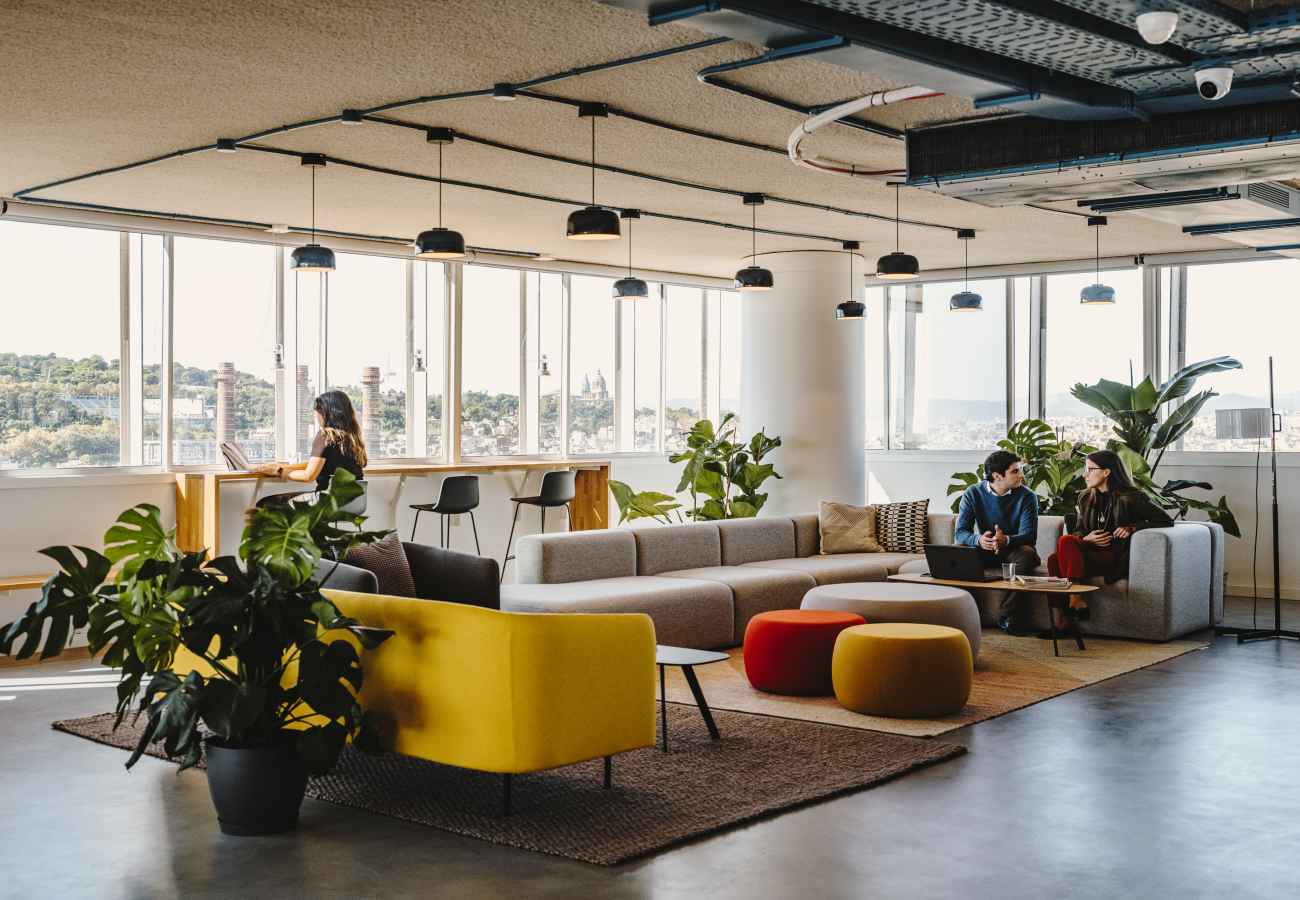
Community
What will the return to work be like? Find out in this article
March 24 / 2021
Going back to a normal routine after the current and changing situation made the companies choose remote work as the main choice.
What will happen when we return to normality?
The pandemic’s impact will likely affect the design of workplaces, from classic offices to “hot desking”, although individual circumstances of the workers and the type of work must be taken into consideration. The most important aspect is that spaces are adapted to the workers’ needs after a period of constant change and instability.
In this manner, new methods for restructuring companies shall emerge to help us be more prepared for possible situations such as the present one. Developing a plan and strategy, managing health and safety, and reconsidering facilities and technology are some of the developments that, according to PwC Spain, should be gradually implemented as a critical aspect of improvement.
Planning also requires a strategy to face future emergencies such as the one we are experiencing now. In this way, we can ensure that the business and commercial sector does not suffer the setbacks it has faced in the past year.
Advantages of going to the office
Working in an office is a vital part of the quality of life for many who experience greater well-being through this method of working. Absence from the office environment for a period can have a negative effect on how you feel. We present some of the most important advantages.
Construct a better routine
Many of us started working from home in hopes of organizing our days more efficiently. However, many professionals do not have an optimal space or place to work and find that this hinders their productivity.
Office workers who return to their desks are much more likely to lead a structured lifestyle. That is why, once away from home, going to the gym or reading during the lunch break in Catalonia and Madrid can become much more manageable tasks.
Access to better facilities
An uncomfortable work-at-home setup can affect productivity. The makeshift desks and spaces in the home are not good enough to work from for long periods.
Poor ergonomics can significantly impair work performance, as can a lack of natural light. In offices, the infrastructure has been designed to make working a comfortable experience and thereby increase productivity.
Advantages of working remotely
Teleworking also has its benefits. It has allowed companies to enjoy advantages such as expanding their talent pool and improving time management in a completely autonomous way. We will list all the advantages below.
Attractive for modern companies
Teleworking is an attractive bonus of current job offers. In a globalized labour market, it allows people to connect with offers from different parts of the world to fulfil their professional goals.
Although we remain in an uncertain and changing environment, it is estimated that remote workers are more likely than face-to-face workers to stay in their jobs for extended periods. This could be attributed, in part, to the fact that teleworking professionals are more likely to earn salaries based on their performance and obligations rather than on their conformity to a working schedule.
Reduced carbon footprint
Teleworking is good for the environment and, in turn, good for companies. If professionals start working remotely, more than 50 million tons of greenhouse gases could be prevented from entering the atmosphere. The European Environment Agency found that due to the drastic reduction in trips during the lockdown, greenhouse gas emissions were reduced by 40% less in Barcelona from one week to the next.

What is the best solution to return to normality?
Currently, many companies cannot afford to reopen their workspaces if they do not meet the minimum conditions.
Therefore, having a space adapted to current standards ensures that professionals have a quiet area to concentrate on their tasks and work with their colleagues in a safe environment. So, although each case should be dealt individually, combining remote and office work is the most recommended option.
That said, we know that for every worker, their health and a comfortable work environment is their top priority. For this reason, at Cloudworks locations, we have flexible plans and up-to-date preventive health measures to make you feel safe in an ideal working environment.
